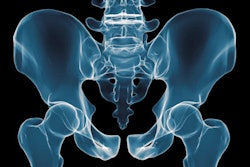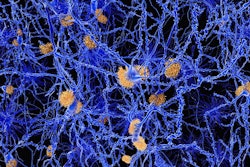Dear AuntMinnieEurope Member,
The European Society of Cardiology's elections wouldn't usually generate much interest among the medical imaging community, but this week's results promise to be very different.
The society's president-elect, imaging guru Dr. Stephan Achenbach, has strong links to radiology and has expressed his commitment to fostering collaboration and avoiding turf battles. His appointment could be great news for radiology. Go to the CT Community, or click here.
Unnecessary x-rays are of serious concern because of the radiation dose to patients and the waste of resources, so a new audit of abdominal x-ray requests appears certain to set alarm bells ringing. To find out why, click here.
Patients appreciate speaking with radiologists, even for a couple of minutes immediately after imaging examinations. So in this era of artificial intelligence, it's vital not to forget the human touch, according to Swiss researchers. Get the full details here.
A study about the cost-effectiveness of breast screening was published in JAMA Oncology last week, but it's already proved controversial. Dr. László Tabár is convinced that article is based on flawed methodology and is another example of "nonscience." Go to the Women's Imaging Community, or click here. And don't miss the extra comments from Dr. Tabár and Dr. Peter Dean below the article and in our Forums.
In other news, a German team has pinpointed the presence of frontotemporal lobar degeneration as the determining factor to explain why Alzheimer's patients with amyloid-positive PET scans can outlive patients with negative amyloid results. Visit the Molecular Imaging Community, or click here.
Finally, if you're looking for another reason to ditch your necktie, then you should head to our MRI Community or click here for some intriguing research. One skeptic, however, has proposed follow-up articles on garottes and guillotines because all of them influence blood flow to the brain.



















